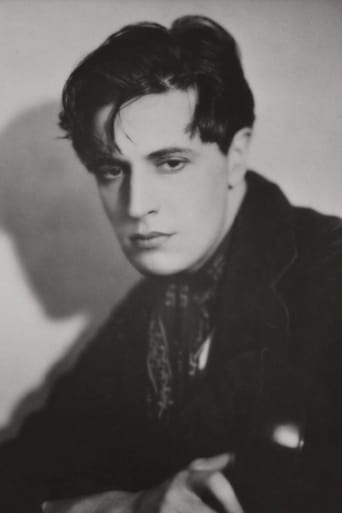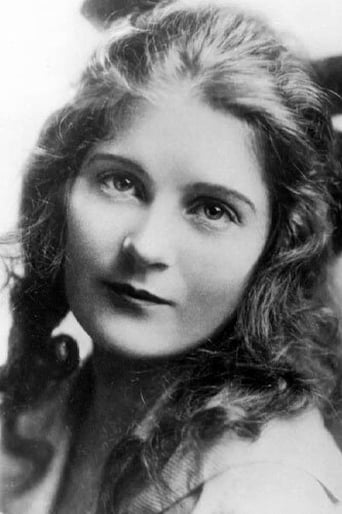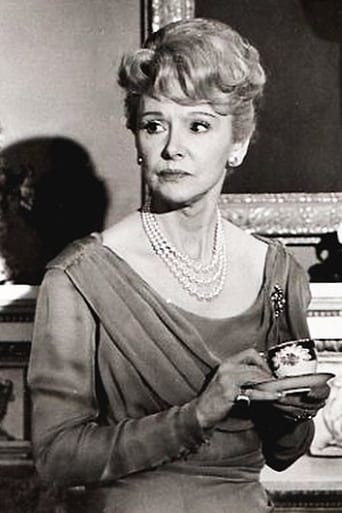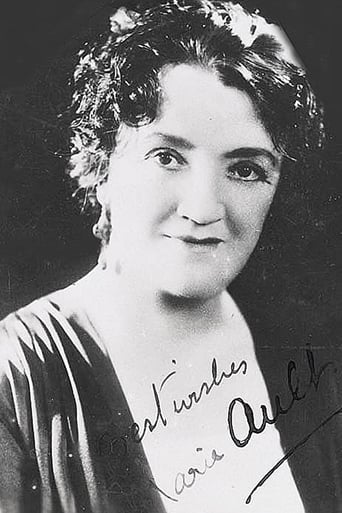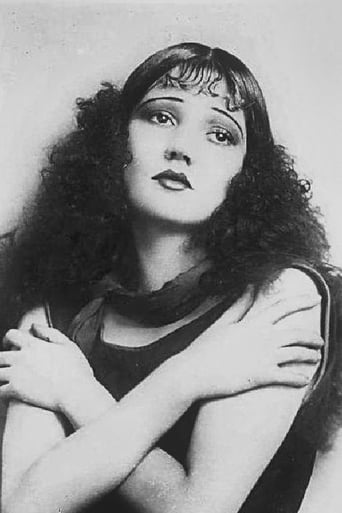Sammy-Jo Cervantes
There are moments that feel comical, some horrific, and some downright inspiring but the tonal shifts hardly matter as the end results come to a film that's perfect for this time.
Rozinda
I can't really vote on the quality of this movie as I haven't yet seen it but I can guess it will be 9 or 10 out of 10. I can tell you there is a splendid old book by Phyllis Bottome based on this movie which of course was based on Novello's (and another's) own stage play in which he also starred and was sensational then too.Novello is undoubtedly one of the most attractive stars of show business. I remember hearing about him when I was a young child and he was starring in London in King's Rhapsody. He was hugely popular. I have seen his third Rat movie, which I hear is not as good as the earlier two but it is still great fun and he is still stunning. I have seen his brilliant movie the Lodger (directed by Hitchcock of course) in which Novello is simply amazing and the quintessential matinée idol. I have seen one Valentino movie and I did not find Valentino as exciting as Novello - however I have not yet seen The Sheik movies which I am ordering shortly... I've also seen Novello in a talkie version of the Lodger, which though not as good as the original and the quality of the print was poor, it is wonderful to hear this great man's voice and watch him play piano. Yes, he did a great deal more than star in a few movies! If The Rat is not as good in its different way as the Lodger, I will be very surprised. But WHERE CAN I GET A COPY of The Rat and the first sequel?
Igenlode Wordsmith
Yes, it's true; despite all the hype, even in this day and age Ivor Novello on screen *is* exceedingly handsome... and doesn't he know it, just!Of the three 'Rat' films, the original is my favourite. The 'Rat' cuts a more interesting figure as the swaggering, hunted young 'apache' of the Parisian underworld than as a honeyed society seducer, let alone his final continuity-straining incarnation as something of a hen-pecked husband.The 'Rat' of the first film is a flamboyant, boastful young rogue whose idea of a coat-hook is a knife tossed at the wall at the critical moment. He is the acknowledged ruler of the sordid echelons of society gathered at the White Coffin Club (whose gimmick is that all the arches are coffin-shaped). All the girls adore him, and most of then have been at one time or another recipients of his capricious favours - but none for long. Whereas with Valentino, frankly, my disappointed reaction was 'what on earth do the women see in him?' Novello's wicked grin and impudent braggadocio in the part of Boucheron, "The Rat", make the nature of his attraction pretty clear. That perfect profile - which he goes to great lengths to show off - doesn't hurt either!But there's one woman in Boucheron's life who is different; the one who shares his lodging and cooks and cleans for him. Odile is the only girl to whom he shows tenderness or teasing, and the only one whom it has never crossed his mind to consider in an amorous light at all. Of course, she's head over heels in love with him.It is fear for her 'Rat's safety, when he accidentally leaves behind the knife that is his constant companion, that drives the girl Odile to disobey his explicit orders and follow him down to the White Coffin Club among the dancers and thieves. But unwittingly, her action leads them both to disaster; for the powerful, corrupt Stetz catches a glimpse of her among the girls of the club, and will stop at nothing to get her for himself...The story is a full-blown romantic melodrama, with a convoluted plot far more detailed than either of its sequels. Those who have no qualms about unashamed emotional response will be able to enjoy it immensely on its own terms, as I did; those who feel themselves too sophisticated for such entertainment will probably dismiss it as "weak pansy stuff", as did my left-hand neighbour.The scenes in the club between Stetz' bored, novelty-seeking mistress Zelie and the arrogant, mocking Rat, both of them accustomed to twisting members of the opposite sex around their little finger, are one of the highlights of the film, both for comedy and sexual tension. A classic example is when the Rat grabs the nearest dancing-girl and casually rips her skirt up the seam so that she can perform an exhibition tango with him!The other outstanding scenes are those between Boucheron and his Odile - the "Rat's Brat" as the girls at the club call her. Here we see another side to him revealed, as he relaxes his flashy public persona in the quiet presence of the girl, "the only one I do trust" as he acknowledges ruefully. He treats her with the peremptory affection of an older brother; but like a brother he springs instinctively to her defence, and when a danger he cannot fight off with his knife begins to close around her, in desperation the layers of sophistication are stripped from him one by one. In the end, the erstwhile leader of the underworld is as helpless as she is, the two of them no more than "a couple of kids in bad trouble", as a sympathetic onlooker comments.Ivor Novello portrays this range, from cocky young crook to desperate boy, quite remarkably well, although occasionally to modern eyes the performance descends into over-acting. It's clear to see even today why the original stage play starring Novello was a smash hit, why Rudolf Valentino tried (in vain) to acquire the film rights, and why the screen version launched the stunning good looks of its star into instant matinee idol-hood and spawned two sequels. The profits, apparently, were astronomical. I can't say I'm a bit surprised.
